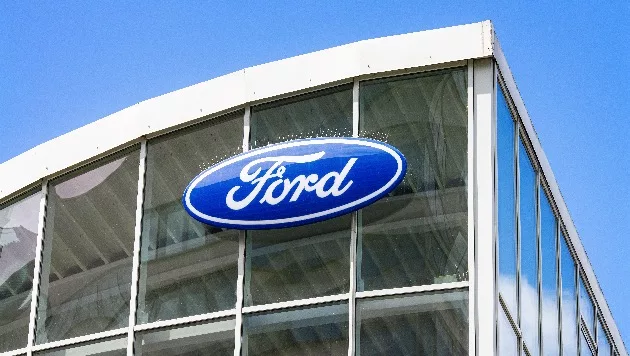Good news for the economy as a whole can be bad news for Michigan, depending on how you look at it…as we learn in this analysis from MIBiz.com in Grand Rapids:
A statewide organization of economic development leaders is sounding alarms following Ford Motor Co.’s recent announcement to venture outside of its home state to make a historic investment in electric vehicles.
Ford announced this week that it — along with partner SK Innovation Co. — will invest $11.4 billion and create 11,000 jobs in Tennessee and Kentucky to build facilities that manufacture both electric vehicles and batteries.
The transformative project includes a 3,600-acre mega campus in the Memphis area, staffed by 6,000 new workers, in addition to a 1,500-acre battery park in the Louisville area, where Ford plans to operate alongside battery supplier SK Innovation Co. Ford will contribute $7 billion to the $11.4 billion project.
Economic Development Leaders for Michigan, a coalition formed last year of 12 economic development agencies, issued a statement following Ford’s announcement saying Michigan’s “economic development toolbox is inadequate to compete for these pivotal projects.”
“I think we had to have a big loss like this to agree we need to move forward together and work together to ensure Michigan continues to be strong,” Jennifer Owens, president of Zeeland-based economic development firm Lakeshore Advantage, told MiBiz in an interview. “Having Ford — which was born and raised here — choose to put their largest investment in history outside of the state of Michigan should send a message that we need to do more to compete.”
However, Gov. Gretchen Whitmer reportedly said at a press conference today that Ford never gave the state an opportunity to provide a pitch for land, labor and tax incentives in an effort to vie for the project.
Owens said that her concern wasn’t just rooted in losing out on Ford’s opportunity, but within what she considers to be a growing trend. To that end, General Motors and LG Chem earlier this year also announced plans to invest $2.3 billion to build a battery plant in Tennessee.
“This isn’t just about Ford — this is one of many major battery expansion projects that our state has lost,” Owens said. “For the group of economic development leaders from Michigan that I’m a part of, this was kind of the last straw in ringing the alarm that our state is in a massive crisis and we don’t have the tools to compete for the future of the auto industry.”
The absence of shovel-ready sites, and the incentives to go with them, is one primary reason Owens cited for missing out on Ford’s opportunity.
“Tennessee and Kentucky have massive sites of over 5,000 acres — they put all of the infrastructure in place and offer these places for free for the project,” she said.
Reeling in big fish
When it comes to attracting large corporations to invest in Michigan, Owens said that one of the state’s more useful tools is no longer available.
She was referring to Good Jobs For Michigan, a corporate subsidy program launched in 2017 under former Gov. Rick Snyder’s administration.
The state essentially formed the program to lure Foxconn Technology Group, known for manufacturing iPhones, to Michigan in order to build a production facility, which it failed to do.
Foxconn eventually selected Wisconsin for its $10 billion factory investment, but has since scaled back that project to just $672 million. A project that was once expected to create 13,000 new jobs will create a little more than 1,400 jobs.
Meanwhile, a new piece of legislation introduced last month called the Michigan Employment Opportunity Program will have a hearing in the state Senate this week. The bill is built off of the Good Jobs for Michigan program — much of it recycled language.
“I’ll be frank: Good Jobs for Michigan had a very limited use because of the high amount of job creation it required and the wage level,” Owens said. “The new tool will come into play to lower the job creation level based on the size of the county and the community. So, 100 jobs in the U.P. would be like the impact of a 1,000 jobs in Detroit. It lowers the job creation level, but still can be used on large, transformative projects.”
‘First inning’ loss
Randy Thelen, president and CEO of West Michigan economic development organization The Right Place Inc., released a statement Tuesday following Ford’s announcement, saying: “Ford’s decision to create 11,000 jobs and invest $11 billion of electric vehicle assembly and battery production plants in Tennessee and Kentucky is a setback for Michigan. The automotive industry is Michigan’s game to lose, and we’ve lost the first inning.”
Like Owens, Thelen cited needed improvements when it comes to site availability, talent and training, utilities and incentives.
“We can’t lose without learning, and if Michigan doesn’t learn from Ford’s decision, we risk further losses,” he continued in his statement. “How we respond today will set the course for the next generation of Michigan’s economic future.”
“And, rest-assured, the impact is not isolated to one region of our state, as we have over 400 automotive suppliers employing 40,000 people in Greater Grand Rapids alone,” Thelen added. “An announcement of this magnitude has statewide impact, and we must respond aggressively and immediately.”
From MIBiz.com






